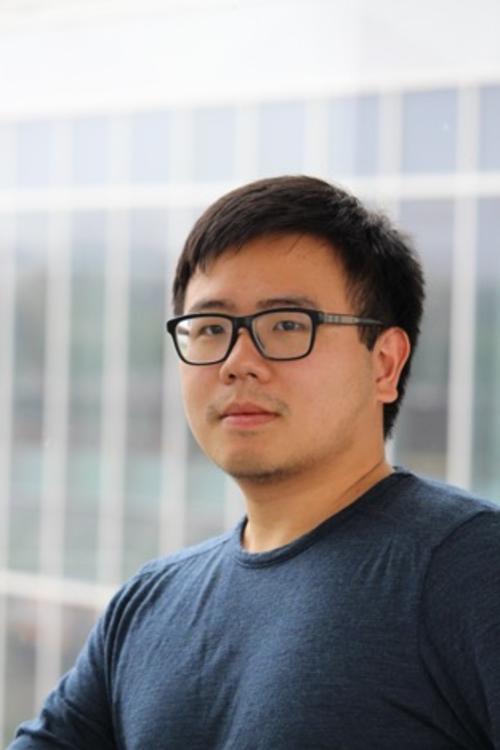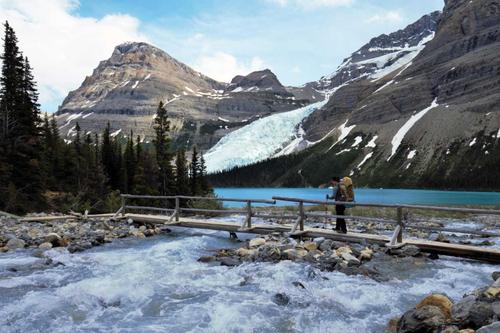 We are pleased to have Dr. Robert Liang as our Alumni network interviewee! We recently caught up with him to get his thoughts on grad school and to find out what he’s up to now. Thanks Rob!
We are pleased to have Dr. Robert Liang as our Alumni network interviewee! We recently caught up with him to get his thoughts on grad school and to find out what he’s up to now. Thanks Rob!
What graduate degree(s) did you do at UW? And when were they completed?
I finished my PhD in April 2017. I studied Mechanical Engineering with a specialization in Nanotechnology.
What was your undergrad program and where did you do it?
I studied Nanotechnology Engineering at the University of Waterloo.
Why did you choose UW for graduate school and who was your supervisor?
I applied to do graduate work during my last co-op at Waterloo through the Accelerated Masters program. I was working on nanomaterials for water treatment and energy applications during my co-op and wanted to continue exploring this field in graduate school under the supervision of Prof. Norman Zhou. He was doing work on shape memory alloys, nanomaterials, nanojoining, and industrial welding applications and I thought it was an interesting mix of industry and academic research projects. I did not associate welding processes with materials science and I did not know how nanomaterials fit into his research scope [laughs]. Nevertheless, I felt it was necessary to have a supervisor with a good blend of academic and industry relevant experience as well as the freedom to choose my own research path. I additionally had a friend from the nanotechnology undergraduate program in his lab that was enjoying the broad scope of work he was doing in Prof. Zhou’s lab so that gave me some assurance on choosing him as a supervisor.
What was your research focus for your doctorate?
My graduate research was on photocatalysts for water treatment applications. I think the switch from my first focus on biomedical research early in my undergraduate co-op program to materials research for environmental applications in graduate school served me well. My time working on biomedical studies, although interesting, was difficult in terms of time commitment, experimental reproducibility, and having to work with biological specimens that have complex behaviour. I focused on the synthesis of photocatalysts using scalable processes to treat organic pollutants in water, which include pharmaceuticals and personal care products, algal toxins, and natural organic matter. I was able to collaborate with colleagues at the University of Toronto Drinking Water Treatment group that specialized in analyzing and developing processes for drinking water treatment.
Can you share some of the personal challenges you faced during your time as a grad student?
My greatest challenge as a graduate student was struggling to avoid doing too many things at the same time. For example, while trying to complete my PhD and applying for research grants, I was managing a rental property with 12 bedrooms. I had to negotiate leases, maintain the property, and resolving issues and disputes. Having to acquire favourable leases for the landlord in a student renter’s market and resolving property issues was particularly challenging in terms of time commitment and stress, but it gave me appreciation for people doing this job and gratitude for having the opportunity to even be able to do research as a living. You cannot imagine some of the things that can happen to a rental property.
What career-related challenges did you face as a graduate student?
I would say trying to balance two diametrically opposed career options in academia and entrepreneurship. I had trouble switching back and forth with the “publish or perish” mentality, which focuses on publishing novel results that don’t often work outside a controlled experiment, or have limited use, and trying to solve customer facing problems.
What were some of the most enduring memories you have from your time in grad school?
I thoroughly enjoyed being a graduate student, much more than as an undergraduate graduate student. In my five years in graduate school, I have had a lot of influential memories, but these come into mind:
- Hiking Mt. Rainier with another WIN alumini, which is the highest mountain in the Cascade Range. Having to trek a high altitude climate on a glacier and active volcano gave me the confidence to do a lot of things that I would not do previously or could even conceive of. There is something about risking your life that allows you to take other risks. This is something missing in our culture and should be a rite of passage.
- Completing a 320 km bike trek around the Cabot Trail in Cape Breton, Nova Scotia, which included giving an impromptu seminar on my research at Cape Breton University, getting five flat tires along the way, and ending up staying at a Mi'kmaq reserve on the final night.
- Writing two successful grants, one of which I had little hope would get funded.
- Going to Edmonton and Beijing for invited workshops, which I would have never thought of going to during my time as a graduate student.
Looking back, would you still have gone to graduate school and done anything differently?
Looking back, I would have still chosen to go to graduate school. If I had to do anything differently, I would have collaborated with more of my lab members and other research groups. I would have also chosen to spend less time on research projects and collaborations that did not generate conclusive results and focus more on projects that allowed me to learn something new or acquiring other technical skills (i.e design, CAD, statistics, etc.). I also learned to delegate and increase throughput of experiments later in my graduate studies, which would have certainly helped earlier on my graduate studies.
What are you working on now?
I am working on my postdoctoral fellowship in the Servos lab at the University of Waterloo to commercialize the results of my research in water treatment processes, specifically advanced oxidation processes and filtration.
What do you like best about your current projects?
My favourite thing in my role is transitioning from mainly writing academic publications to applying my research to solve problems in the water treatment industry, such as algal blooms in the Great Lakes. I am also learning about additive manufacturing technologies that enable me to prototype my solutions.
What direction would you like to take as you build your career?
In 5-10 years, I see myself in a R&D role in a materials manufacturing or water treatment industry. This will be either in developing and growing a start-up or through employment opportunities.
Has your career path trajectory changed from what you expected while in grad school? If so, how?
Absolutely. I entered the accelerated Masters program in order to get my Masters degree quicker and apply for a job in industry. This did not happen. Instead, I transferred over to PhD after contemplating the costs and benefits of pursuing one. I did not imagine I would be using my research skills obtained from my graduate studies and applying them to commercialize some of my ideas when I first started.
What advice do you have for current and prospective graduate students?
I have a lot of advice. Here are my top DO’s and DON’TS:
DO NOT’s:
- Do not do a PhD if you do not love research and writing. If you are doing a Masters, get industrial experience, either through a NSERC CRD-funded project or through the MITACS program.
- Do not disregard your physical and mental health.
- Do not fall in love with your ideas. Your first research idea is most likely not going to work out and someone has already thought of it.
- Do not focus only on academic activities and develop other job-relevant and life skills (even if you do end up in academia). In academia, there is no difference between academia and the real world. In the real world, there is.
DO’s
- Conduct an opportunity cost analysis of what you would be giving up going to graduate school in terms of salary and job experience.
- Learn from more experienced graduate students and collaborate with them on their projects by offering value for value and generating win-win situations. You can also learn from younger undergraduate students, especially those that have different skillsets than yours.
- Invest time in free, or nearly-free, options. For example, applying for scholarships, and going to social, networking, and conferences events. These all have almost no downside in doing, but have huge upside if it works out in your favour.
- Do something that you always wanted to do in your life because you may not have the opportunity to do so again.
- If you are eying for academia, leverage your research time through collaboration projects, which will generate journal publications, and use of the university co-op system to your advantage. Having co-op students (if you can convince your professor to get one) consistently generate research results from redundant experiments and activities makes it easier for you to devote time on research writing, presentations, planning, and networking.
- If you are more entrepreneurial, use your time in graduate school to solve a problem that you will find worthwhile to invest years.You will also need to find a supervisor that will give you the freedom to do this, which you can certainly find at the Waterloo Institute of Nanotechnology.
What do you like to do outside of work?
Outside of work, I like to go hiking on weekends. I also like to play squash and soccer in my spare time. I'm someone who likes to try something at least once for the novelty factor. I am planning to hike the Overland track in Tasmania next February.

The photo was taken near the Berg Lake, the turquoise body of water that serves as the doorstep to the highest peak in the Canadian Rockies, Mt. Robson. After an arduous 19 km hike, the thunderous noise from calved serac avalanches sends an unnerving feeling to the weary traveler.
Is there anything else you would like to add?
Thanks for the opportunity to share my thoughts about graduate school. I can be reached through email if anyone wants to connect and chat further: rliang@uwaterloo.ca




